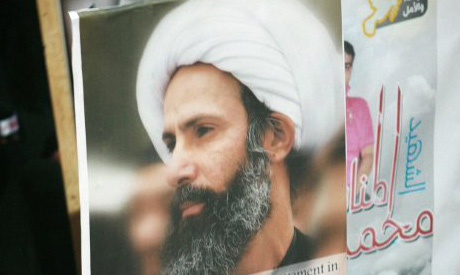
Shiite cleric Nimr al-Nimr (Photo: AP)
A court in Saudi Arabia has sentenced two more people to death in connection with protests by minority Shiites that began three years ago, official media said.
The latest convictions followed last week's death sentence against Shiite cleric Nimr al-Nimr, a driving force behind the demonstrations.
A special court in the capital Riyadh issued the latest verdicts "as a deterrent to others," the Saudi Press Agency said late Tuesday.
A third person was jailed for 12 years.
SPA did not name the accused, who were tried on charges including "participating in marches and rallies that caused riots" in the Eastern Province community of Awamiya.
They were also accused of "chanting slogans hostile to the state with the intent of breaching security and overthrowing the regime," attacking security forces, and stealing medical supplies from a pharmacy to treat people injured during protests.
Two people had already been sentenced to death in June for "taking part in forming a terrorist group" and other crimes linked to the Shiite demonstrations.
Several others have received multi-year jail sentences.
Most of Saudi Arabia's estimated two million Shiites live in the east, where the vast majority of the wealthy kingdom's oil reserves lie.
Many Shiites complain of marginalisation in the Sunni-dominated kingdom.
They began demonstrating in February 2011 after an outbreak of violence between Shiite pilgrims and religious police in the Muslim holy city of Medina in western Saudi Arabia.
Protests escalated after the kingdom's intervention in neighbouring Bahrain to support a Sunni monarchy against an uprising led by the Shiite majority.
Hundreds were arrested in Saudi Arabia, according to Amnesty International.
Tension rose further in July 2012 when security forces arrested the grey-bearded Nimr, who was shot and wounded.
After the sheikh's conviction last week, his family accused the court of ignoring his "peaceful and non-violent approach," saying the case had caused "social and political discontent".
Short link: